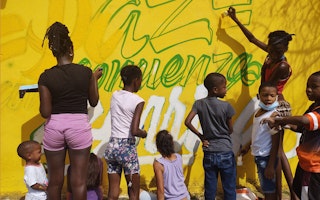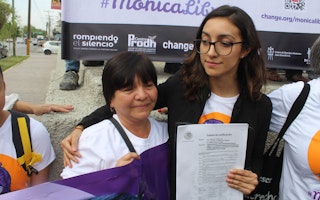The right to vote forms the core of American democracy. Yet, nearly 5.3 million citizens (or 1 in 41 adults) are unable to vote in either federal or state elections because of a criminal record. Ten states deny automatic restoration of voting rights to at least some citizens who have completed their sentences, barring them from the polls long after their punishment has ended—and often for the rest of their lives. As a direct result, more than 500,000 veterans, more than 650,000 women, and 1.4 million African-American men are disenfranchised.
In this report, The Brennan Center for Justice proposes automatic post-incarceration voting rights restoration in each of the 35 states that still disenfranchise people who are back in their communities. Under the system recommended by the Brennan Center, citizens released from prison would be immediately eligible to vote while on probation and parole, as would be those who are sentenced to probation without serving any time in prison. These citizens would be permitted to register in precisely the same way as other eligible citizens, without submission of special paperwork.
Erika Wood is Deputy Director of the Democracy Program at the Brennan Center for Justice, spearheading the Brennan Center's Right to Vote Project. Previously, Ms. Wood was an attorney with the Legal Action Center where she litigated cases involving HIV/AIDS discrimination and privacy, and worked on various criminal justice issues including felony re-enfranchisement. She is the primary author of two reports that documented the continuing illegal disenfranchisement of people with felony convictions in New York and Alabama, both of which launched major efforts to reform the voting rights restoration policies in those states.
Download
-
Restoring the Right to Vote (450.93 Kb pdf file)
Download the complete publication.
Read more
Homicide Reduction
Q&A: How One Colombian City Is Tackling Violent Crime

Palmira, Colombia, is one of the most violent cities in the world. But a prevention program focusing on youth has reduced crime significantly—and earned it an international peace prize. The city’s mayor on what’s working.
In Remembrance
Lani Guinier’s Overlooked Education Legacy

The late Lani Guinier thought deeply about the intersection between education and criminal justice. Her leadership at Open Society helped pave the way to colleges across the country offering higher education to the incarcerated.
WOMEN'S RIGHTS
Challenging Mexico’s Abusive Preventative Detention System

Mónica Esparza’s case is one of the most notorious cases of extreme gender violence carried out by Mexican authorities. What her story teaches about how to combat the country’s scourge of gender-based violence.
